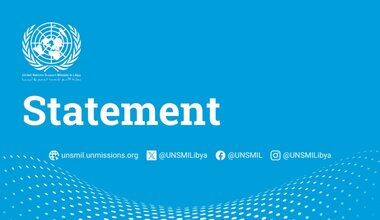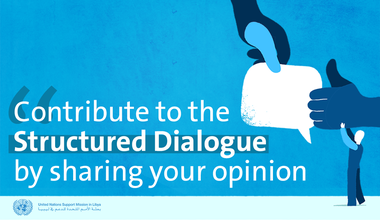UNDP Libya launches a the Stabilization Facility Plan for Libya during the senior officials meeting in Tunisia
The Stabilization Facility for Libya was launched today at the Senior Officials’ Meeting in Tunis in the presence of H.E. Dr. Taher Al-Jehaimi, Minister of Planning in the Libyan Government of National Accord, Mr. Rüdiger König, Director General of Crisis Prevention, Stabilization and Peace Building in the Federal Foreign Office of the Federal Republic of Germany and Mr. Ali Al-Za’tari, UNSMIL Deputy Special Representative of the Secretary General, and Dr. Noura Hamladji, UNDP Libya Country Director.
The Stabilization Facility is an initiative of the Libyan Government of National Accord (GNA), supported by UNDP and the international community.
The Stabilization Facility for Libya aims to support the Libyan Government of National Accord providing very visible and tangible quick-wins to the population at the local level. The rehabilitation of critical infrastructure destroyed by conflict will directly improve basic service delivery. The Stabilization Facility will be Libyan led, with the Prime Minister or his representative chairing the board jointly with the United Nations. This is a Facility for all Libya and will benefit municipalities in the East, West and South of the country.
The facility can finance rehabilitation and repairs of key public infrastructure including clinics, hospitals, police stations, water facilities, waste water treatment facilities, power grids and stations, etc. The facility can also support businesses that were destroyed by the conflict or degraded and are vital to whole communities, such as bakeries in places where they were destroyed and people are forced to bring bread from elsewhere.
The interventions of the Stabilization Facility will be implemented by UNDP and will be selected based on needs assessment on the ground. The priorities will be jointly agreed among the GNA, local authorities, civil society and affected population.
The Facility will be initially limited to specific selected localities covering the East, West and South Libya. If funding allows, it can expand its scope in all areas of Libya.
Today, at the Senior Official Meeting held in Tunis, the Facility enjoyed an overwhelming support from the international community. Germany pledged 10 million euros for two years, the United States pledged 2 million dollars for the first year, the Government of Italy 2 million euros for the first year, The United Kingdom 1 million dollars for the first year, Qatar 2 million dollars, Norway $ 1 million dollars, Switzerland 250,000 dollars, while other members of the International community such as the European Union, Republic of Korea, Canada, Russia the Netherlands pledged their full support and confirmed their intention to join the effort.
 United Nations Peacekeeping
United Nations Peacekeeping UN
UN














